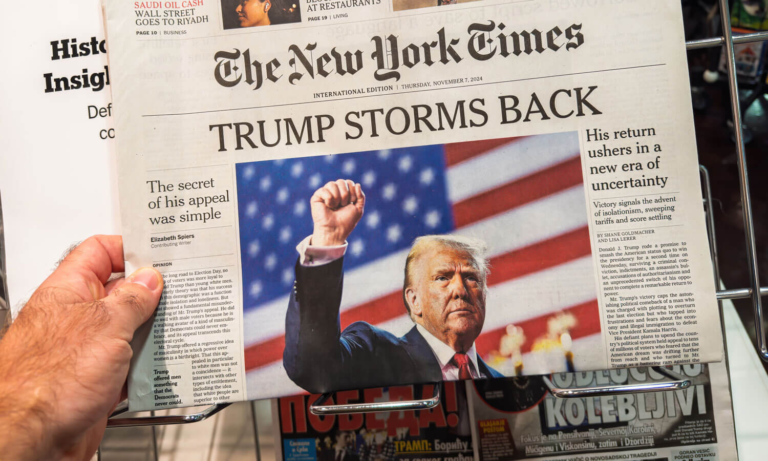The Trump effect
A few things have changed in the world since the last time I wrote a Making Sense of the Markets column a couple of weeks ago. Republican control of all three levels of the American federal government (assuming current vote-counting patterns hold) have sent stocks soaring. This week, the S&P 500 zoomed past 6,000 for the first time, the Dow Jones Industrial Average hit 44,000, and even our very own TSX hit an all-time high of 25,000. It turns out that investors really like the idea of uncontested elections, a lack of insurrections at the White House, and the promise of massive tax reductions.
There are many theories about how president-elect Donald J. Trump’s policy promises will affect the markets around the world. With the massive caveat that many of these campaign promises are unlikely to be fully realized, here’s a brief look at the more prominent market news stories to come out of the election:
- With Trump as president, Bitcoin could continue to go through the roof due to manic trading behaviour. Cryptocurrency lobbyists paid more than USD$119 million in order to ensure that Trump will be cheerleading their product(s) “to the moon.” They hope their
bribesbets will pay off. - Despite making the electric vehicles that Trump once professed to hate, Tesla (TLSA/NASDAQ) shares will go up purely on the basis that CEO Elon Musk has Trump’s ear. Tesla’s share price is up more than 30% since election day.
- The stock of Trump Media & Technology Group Corp. (DJT/NASDAQ) continued its rise to prominence as the official meme stock of 2024. The company is again worth more than USD$6 billion, despite having no profits—nor any real plan to produce profits in the future.
Many Canadian small- and medium-sized businesses are expressing concerns of the 10% to 20% tariff rates, promised by Trump, against all goods produced outside the United States. However, I wouldn’t bet on Canadian oil and natural gas being targeted for tariffs, considering that Trump’s new National Security Advisor is married to the vice president for TC Energy Corp.
One could also argue the overall effect of a roaring deficit-fuelled U.S. economy (full of supercharged consumers who buy Canadian goods) could balance out the tariff threat, as far as the overall Canadian economy goes. But the same case can’t be made for many countries in Asia.
Andrew Tilton, Goldman’s chief Asia-Pacific economist, recently highlighted Korea, Taiwan and Vietnam as countries that could be most drastically affected, in addition to Trump’s favourite tariff target, China.
I personally think if there’s one thing we’ve learned from elections around the world this year, it is that most people have no idea how inflation works—and that they really really hate the cost of things right now. Those strong voter emotions will likely place an inflation-supported ceiling on just how high Trump can push his tariff agenda.
While “tariff” might very well be Trump’s favourite word, but “inflation” isn’t likely on his radar. The Tax Policy Center and Peterson Institute for International Economics predicts that the typical U.S. household would pay almost $3,000 more per year if he enacted a 20% worldwide tariff, combined with a 60% tariff on Chinese goods.
Of course, it’s worth pointing out that all this information was likely priced into the market in the days following the election. So if you’re planning to capitalize on the “Trump Trade,” you’re almost assuredly late to the party.
